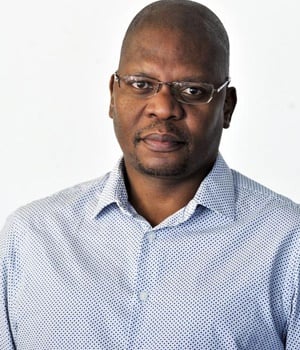
There was a lot of defending going on at the ANC Youth League (ANCYL) national conference last weekend.
Deputy President Cyril Ramaphosa kicked off the defending when he opened the conference, telling delegates the youth league had to be “the defender of the ANC at all costs, at all times, whenever the ANC is attacked”.
“It must engage with those who want to defeat the ANC. It must engage with those who insult the ANC. Those who call our leaders names, those who degrade the name of our president, must be engaged by the ANC Youth League.”
He was joined by President Jacob Zuma, who urged the league to “define its role in both the offensive and defensive strategies and tactics” of consolidating the gains of the revolution.
“Your role is to defend this hard-won democracy from all counter-revolutionary elements, wherever they are placed. To be able to do this, you need to define counter-revolution in the South African context to enable the organisation to respond to it in defence of the ANC, our revolution, the republic of South Africa and its people as a whole.”
Former youth league president Fikile Mbalula, now the sports minister, also chipped in, saying the ANC needed to be defended against forces that were bent on destroying the organisation.
“Those forces have relentlessly waged a propaganda war against the ANC and it is up to the ANCYL to defend the revolution,” he growled.
Zuma returned on the last day of the conference to urge even more defending.
“Every revolution produces counter-revolutionaries … who will tell them if you don’t do it? Are you afraid of them? Do not be afraid of them … whether in social media, Parliament – although you’re not in Parliament but here – you can wait for them when they come out of Parliament,” said the president.
The newly elected youth league president, Collen Maine, took the cue from his seniors, promising to defend as told. He told delegates that some “forces have made it fashionable to themselves to systematically spew hatred towards the president of the ANC ... instead of engaging him as the head of state”.
“We must be resolute in our defence of the ANC and its leadership, in particular President Jacob Zuma,” added Maine, concluding that “we are ready for war”.
All of this defending immediately raised the question as to what exactly it is that the party needs to be defended against. A quick jog down memory lane will reveal that in all national elections since 1994, the ANC has received between 63% and 69%, has always governed either seven or eight of the provinces and has always controlled most municipalities. Aside from the 1994 elections, which took place during a time of turmoil, all polls were free, fair and legitimate.
In all this time, the governing party has been in charge of an 80 000-strong defence force and 200 000-strong police service. Its control spans the bureaucracy and the parastatal sector. Party branches are to be found in every nook and cranny of the country. Labour federation Cosatu, the ANC’s major ally, has a presence on most major shop floors, and many leaders in professional and business associations are sympathetic to the party. The only areas the ANC does not fully control are the constitutionally protected institutions, the media and the private sector. But even in the private sector, it has legislative authority to crack the whip, something it has done with great effect when it has had the political will to do so.
Governing parties in democratic states would kill for the kind of influence the ANC wields.
So against who or what does the ANC need to be defended? Who are these counter-revolutionaries who must be “dealt with”? A reading of the speeches by ANC leaders will reveal that these “forces” are in fact parliamentary parties operating within the political system. Like the ANC, they acquired seats in Parliament and legislatures after legitimate elections. None of them has armies and none has intentions of launching a guerrilla war. The most revolutionary thing they do is attempt to unseat the ANC through the ballot box.
The other categories of “enemy” are business, NGOs, civil society groupings and think-tanks. Many of these have resorted to the courts to force government to do something or to stop certain executive acts. Their weapons have been men and women in black robes carrying large suitcases.
Sometimes, these men and women have been able to convince judges, and sometimes they haven’t. Some of them have resorted to marches and petitions in a bid to win over public opinion.
The think-tanks sink their teeth into research and work to swing public opinion. None of these organisations has a private army and none is likely to resort to assassinations.
I’ll again ask the question: What does our powerful governing party need to be defended from?




 Publications
Publications
 Partners
Partners








